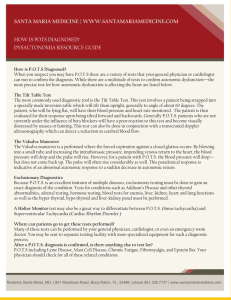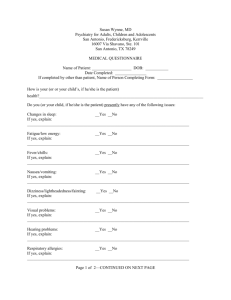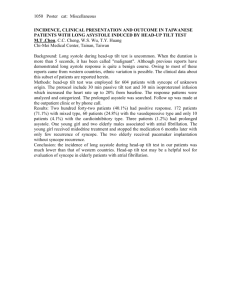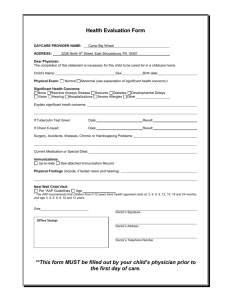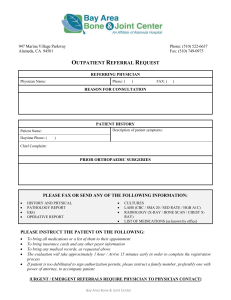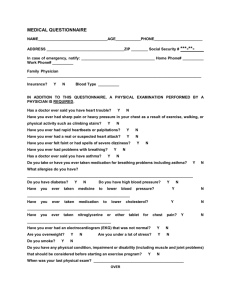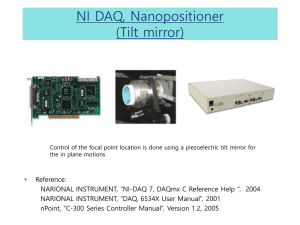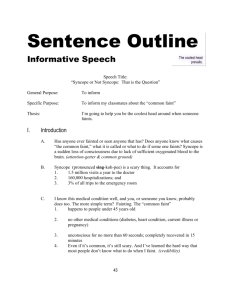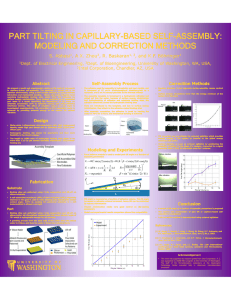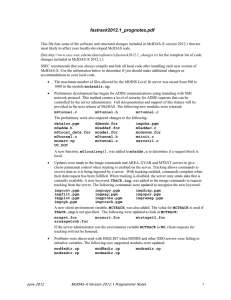Tilt Table
advertisement
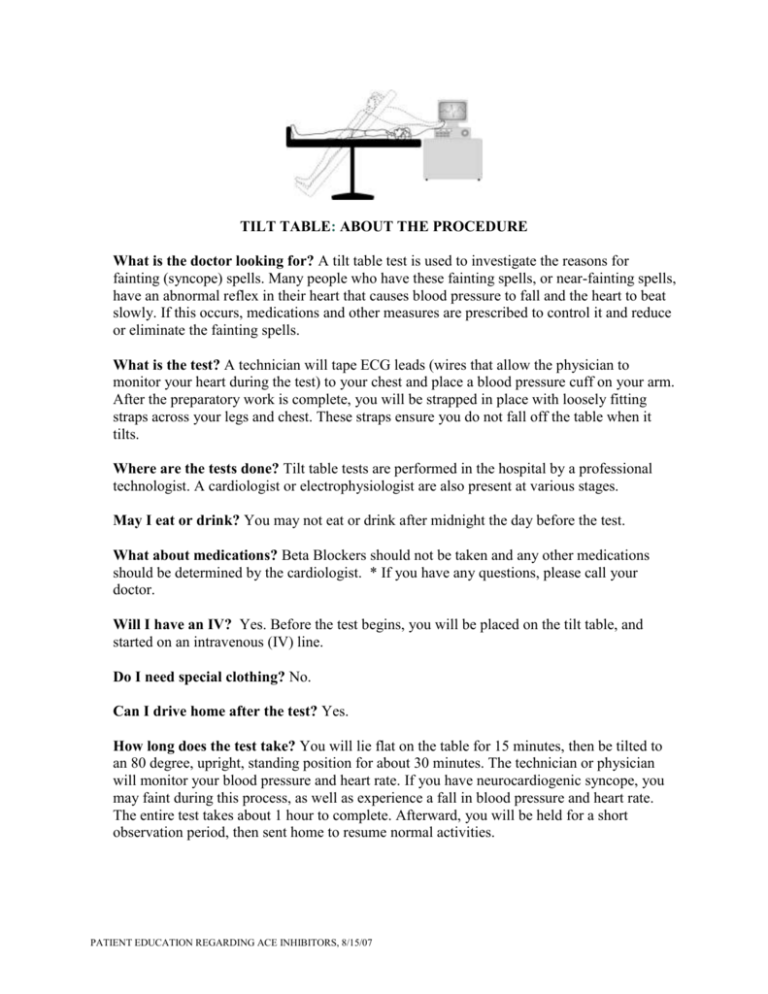
TILT TABLE: ABOUT THE PROCEDURE What is the doctor looking for? A tilt table test is used to investigate the reasons for fainting (syncope) spells. Many people who have these fainting spells, or near-fainting spells, have an abnormal reflex in their heart that causes blood pressure to fall and the heart to beat slowly. If this occurs, medications and other measures are prescribed to control it and reduce or eliminate the fainting spells. What is the test? A technician will tape ECG leads (wires that allow the physician to monitor your heart during the test) to your chest and place a blood pressure cuff on your arm. After the preparatory work is complete, you will be strapped in place with loosely fitting straps across your legs and chest. These straps ensure you do not fall off the table when it tilts. Where are the tests done? Tilt table tests are performed in the hospital by a professional technologist. A cardiologist or electrophysiologist are also present at various stages. May I eat or drink? You may not eat or drink after midnight the day before the test. What about medications? Beta Blockers should not be taken and any other medications should be determined by the cardiologist. * If you have any questions, please call your doctor. Will I have an IV? Yes. Before the test begins, you will be placed on the tilt table, and started on an intravenous (IV) line. Do I need special clothing? No. Can I drive home after the test? Yes. How long does the test take? You will lie flat on the table for 15 minutes, then be tilted to an 80 degree, upright, standing position for about 30 minutes. The technician or physician will monitor your blood pressure and heart rate. If you have neurocardiogenic syncope, you may faint during this process, as well as experience a fall in blood pressure and heart rate. The entire test takes about 1 hour to complete. Afterward, you will be held for a short observation period, then sent home to resume normal activities. PATIENT EDUCATION REGARDING ACE INHIBITORS, 8/15/07 TILT TABLE, PAGE 2 When will the results be ready? Results are generally available to your physician within 24 hours. Tell your doctor/nurse if you have … Any contraindications, such as carotid stenosis and severe LV dysfunction. Will the test make me sick or sleepy? Some people experience dizziness, nausea, and vomiting during a tilt table test. As well, those uncomfortable with needles may experience discomfort or pain associated with the insertion of the IV. Will I receive any radiation during the procedure? No What if I am pregnant or breast-feeding? Notify your physician as this test may not be appropriate. PATIENT EDUCATION REGARDING ACE INHIBITORS, 8/15/07

